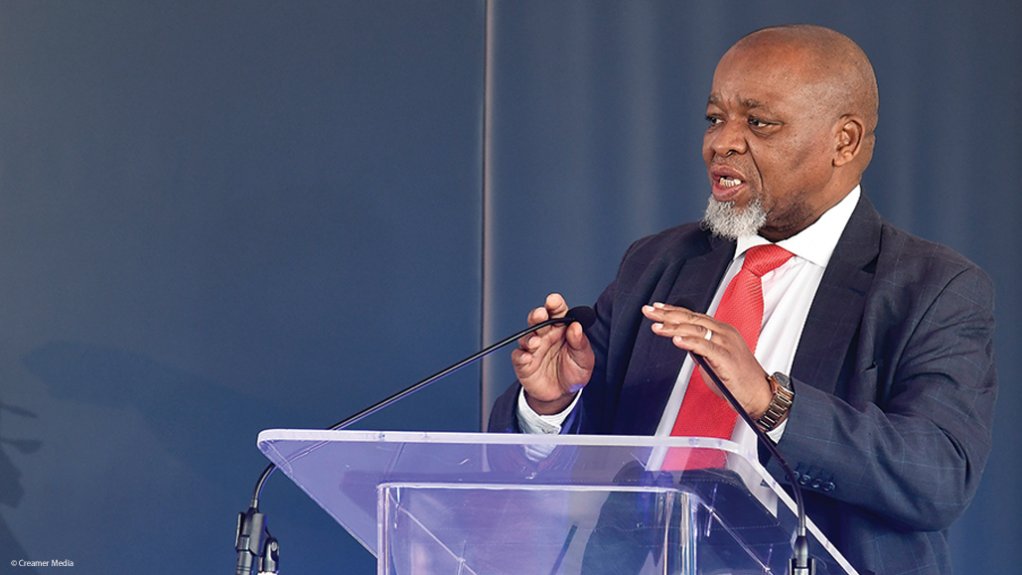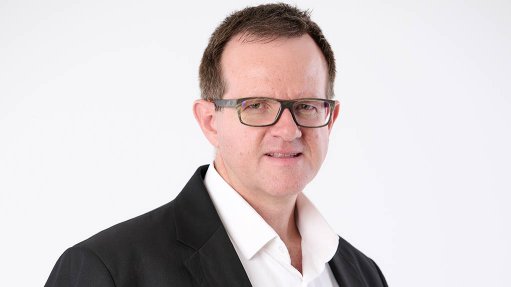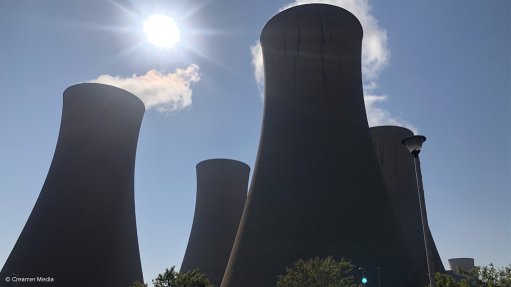Oil, gas development activism lambasted



GWEDE MANTASHE The SADC region was endowed with vast oil and gas deposits
Photo by Donna Slater
PURSUING DEVELOPMENT Pursuing oil and gas projects in South Africa and neighboring countries offers significant development opportunities to grow GDP
Photo by Generated with the assistance of AI
Lengthy and costly litigation is stymying significant progress in exploration and development of oil and gas deposits in South Africa, according to Mineral Resources and Energy Minister Gwede Mantashe who spoke at the third yearly Southern Africa Oil and Gas Conference, held at the Cape Town International Convention Centre on September 13 and 14.
At the event, he expressed concern that investments in local oil and gas deposits have relatively small investment quantum compared with normal investments in the upstream petroleum sector, a situation Mantashe attributed largely to ongoing litigation against the exploration and development of oil and gas projects in and around South Africa, including the halting of the seismic exploration acquisition off the coast which aims to map out the presence of oil and gas reserves.
He expressed unease about the fact that, while other jurisdictions were apparently left undisturbed in their exploration and development of their respective oil and gas resources, South Africa continued to face mounting opposition and obstacles in its own exploration and development of fossil fuels.
Mantashe also expressed concern that foreign-funded nongovernmental organisations (NGOs) were halting exploration and development of oil and gas deposits, claiming that such NGOs were deliberately aiming to block development “in a poor country like South Africa”.
He added that such NGOs had the resources to take on lengthy and costly court processes.
“This needs to be addressed to ensure that foreign-funded NGOs do not have unfettered veto powers against [oil and gas] development in the Southern African Development Community (SADC) region,” Mantashe asserted.
In acknowledging the global effort to move away from fossil fuels, he added that it was essential to ensure the reliable, efficient and affordable development of renewable-energy sources before phasing out existing, carbon-intensive sources of energy.
“Those who advocate for climate change, continue to pit fossil fuels against renewable energies, and as a result downplay the role of fossil fuels in the energy mix, while they exaggerate the role of renewable energies,” Mantashe alleged.
He asserted that SADC countries must define their path to an energy transition from high to low carbon emissions, leveraging the efficient use of all energy sources available to them, including fossil fuels.
In terms of the energy transition, Mantashe reiterated that it should be viewed as a journey that required a gradual, forward-looking approach to renewable energy and decarbonisation efforts.
In further testament to his notable hardline fossil fuel stance, Mantashe expressed concern that many European countries had had to reintegrate decommissioned non-renewable-energy sources and amend their climate change goals, and he implored researchers to fully understand the reasons why such countries had to do so.
He explained that it was important for SADC countries to learn from, and understand, the challenges developed countries had experienced in their energy transitions to ensure that the same mistakes were not repeated in the SADC region.
Further, Mantashe noted that pursuing oil and gas projects in South Africa and neighbouring countries offered significant development opportunities to grow gross domestic product (GDP), emphasising that in doing so, SADC countries could use the money generated to pursue renewable energy and decarbonisation in a sustainable manner that did not risk energy security.
Mantashe noted that the SADC region was endowed with vast oil and gas deposits, as evidenced by recent discoveries in Namibia and South Africa.
He added that the Petroleum Agency of South Africa estimated that South Africa held 27-billion barrels of oil and 60-trillion cubic feet of gas resources along the south, east and west coasts.
This offered significant potential benefits as illustrated by the impact of oil and gas discoveries in Guyana, stated Mantashe.
He added that the Guyana economy grew by 62.3% in 2022 and its domestic gas production enabled government to replace heavy fuel oil in electricity generation with indigenous natural gas, resulting in the reduction of electricity tariffs by 50%.
Further, Namibia's Venus-1 discovery of 2022, which Mantashe said was recognised as the world’s largest find in the past 15 years, enabled Namibia to accelerate its exploration programme and increase its potential to double the country’s GDP by 2040. “That is what we do if we manage our resources properly,” he said.
Mantashe noted that South Africa stood to benefit from R288-billion in investment should the plans of energy company TotalEnergies for its Brulpadda project in the Western Cape, Virginia Gas’ Free State project, a Lephalale coal bed project in Limpopo, and the Afro Energy project in Amersfoort and Volksrust, both in Mpumalanga, come to fruition.
He concluded that South Africa was “open for business” to the global community in the exploration and development of oil and gas.
Article Enquiry
Email Article
Save Article
Feedback
To advertise email advertising@creamermedia.co.za or click here
Announcements
What's On
Subscribe to improve your user experience...
Option 1 (equivalent of R125 a month):
Receive a weekly copy of Creamer Media's Engineering News & Mining Weekly magazine
(print copy for those in South Africa and e-magazine for those outside of South Africa)
Receive daily email newsletters
Access to full search results
Access archive of magazine back copies
Access to Projects in Progress
Access to ONE Research Report of your choice in PDF format
Option 2 (equivalent of R375 a month):
All benefits from Option 1
PLUS
Access to Creamer Media's Research Channel Africa for ALL Research Reports, in PDF format, on various industrial and mining sectors
including Electricity; Water; Energy Transition; Hydrogen; Roads, Rail and Ports; Coal; Gold; Platinum; Battery Metals; etc.
Already a subscriber?
Forgotten your password?
Receive weekly copy of Creamer Media's Engineering News & Mining Weekly magazine (print copy for those in South Africa and e-magazine for those outside of South Africa)
➕
Recieve daily email newsletters
➕
Access to full search results
➕
Access archive of magazine back copies
➕
Access to Projects in Progress
➕
Access to ONE Research Report of your choice in PDF format
RESEARCH CHANNEL AFRICA
R4500 (equivalent of R375 a month)
SUBSCRIBEAll benefits from Option 1
➕
Access to Creamer Media's Research Channel Africa for ALL Research Reports on various industrial and mining sectors, in PDF format, including on:
Electricity
➕
Water
➕
Energy Transition
➕
Hydrogen
➕
Roads, Rail and Ports
➕
Coal
➕
Gold
➕
Platinum
➕
Battery Metals
➕
etc.
Receive all benefits from Option 1 or Option 2 delivered to numerous people at your company
➕
Multiple User names and Passwords for simultaneous log-ins
➕
Intranet integration access to all in your organisation




















